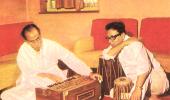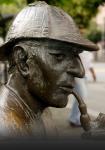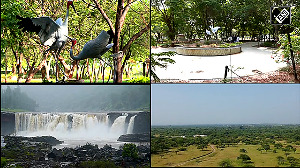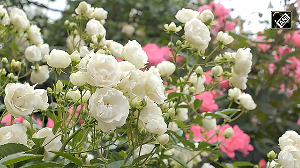It is ironic that Raja Mahendra Pratap's Jat connection is being used for vote bank politics. He could not have cared less for his caste. He was aware of the hold caste had on people's lives, and always rose above this kind of narrow thinking.'
'He mentions that once when he landed at Dwarka the priests asked him about his caste. He replied that he was a sweeper. The priests denied him entry. "I did not care to visit it," he writes, "when it was surrounded by people who had no regard for humanity".'
Mohammad Asim Siddiqui remembers a most unusual man.
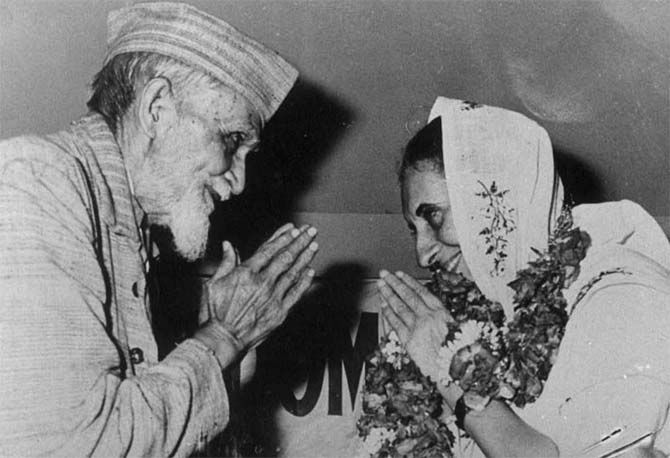
Much to the relief of the people of Aligarh -- especially the students and teachers at Aligarh Muslim University -- the 128th birth anniversary of Raja Mahendra Pratap passed off peacefully. Just a few days ago many people feared that the stage was set for another potential Muzaffarnagar.
Considering the riot-prone history of Aligarh and the city's demographic composition, the fear was not totally unfounded. The Bharatiya Janata Party's Aligarh unit was hell bent on entering the Aligarh Muslim University on December 1 to celebrate the Raja's birth anniversary.
Raja Mahendra Pratap, it should be emphasised, was a very distinguished freedom fighter, who probably has not got his due in history textbooks. An alumnus of the Mohammadan-Anglo-Oriental College (which would later become Aligarh Muslim University) he fondly remembered AMU founder Sir Syed Ahmad Khan, his father's friend, in his autobiography, My Life Story.
After two, three hectic and tense days, the 'clash,' which fortunately remained confined to newspaper reports, was averted after AMU Vice-Chancellor General Zameeruddin Shah (retd) announced a seminar to commemorate Raja Mahendra Pratap's memory.
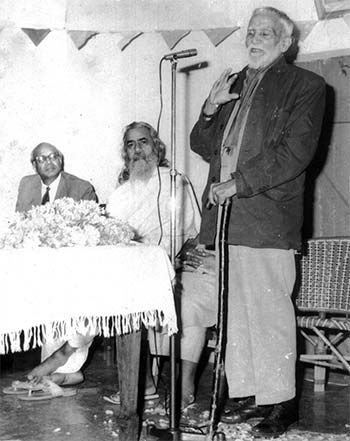
The BJP, excoriated by the national media for political gamesmanship in an educational institution, thus got a kind of face-saving situation and had to agree with the vice-chancellor's decision.
The university drew praise from most quarters, also a bit of flak from some students and teachers for allegedly succumbing to political pressure, for this academic solution to a knotty issue.
A university is the right place for organising academic events; a seminar on a left-leaning freedom fighter, who had absolutely nothing to do with right-wing politics, is the right platform to evaluate his legacy.
The electronic media, often squarely criticised for sensationalising issues beyond all proportion, deserves special praise for its categorical stand on this issue. The issue suddenly became a national issue with all political parties joining the fray.
In all the heated debates on prime time national television, BJP spokespersons were cornered by the spokespersons of other parties, with the television anchors intelligently positioning the debate against a politics of hatred and confrontation.
In all these discussions, one thing was apparent. There are many aspects of Raja Mahendra Pratap that the present generation -- more so our self-seeking politicians -- need to know.
The AMU vice-chancellor's decision to hold a seminar on Raja Mahendra Pratap is not only a political solution, but also the right step to create awareness about an extraordinary man.
History is not only about the past, but also about the present. Present biases should not colour our reading of history. Past icons should not be allowed to be appropriated by vested interests.
There are many aspects of the Raja, especially his belief in the oneness of mankind, his respect for all religions and his love for the country which can be taken up for discussion to clear many present misunderstandings.
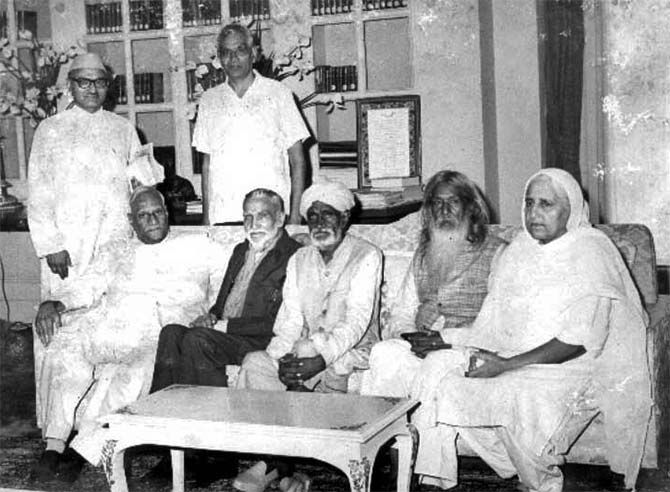
In our time when love is at a premium, it was a defining trait of Raja Mahendra Pratap. Religion had such a powerful hold over the lives of the people in his time, yet he had the strength of conviction to give his son and daughter names of his choice without consulting priests. He named his daughter Bhakti (devotion) and son Prem Pratap (glory of love).
When he started a newspaper in Hindi he named it Prem.
When he started a school at Brindaban he named it Prem Maha Vidyalaya (the College of Love). He writes in his autobiography: 'Some proposed that I should call it after myself. Some said, let it be called after the name of my father. But I said a public institution should not be given a private character.'
He also wrote a book, Religion of Love.
At one time he also named himself 'Peter Peer Pratap', so that, as he writes, 'My Hindu name will not be an obstacle to preaching my Prem Dharma among Christians, Muslims and Hindus.'
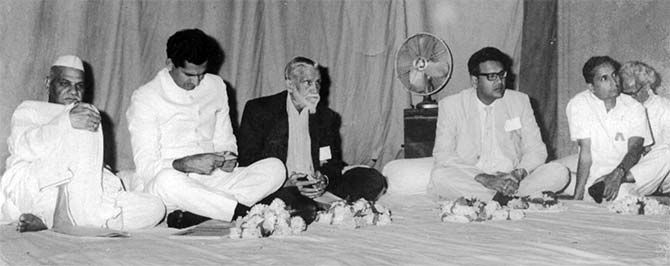
Raja Mahendra Pratap had a lifelong commitment to the cause of secularism. He knew the force of religion and used it to unite the people of India against a common enemy.
The first provisional government of India, which had its base in Kabul, had the Raja as the president, Professor Barkatullah as prime minister and Obedullah Sindhi as home minister. This government tried to form alliances with Germany, Turkey and Russia to liberate India from British rule.
It is ironic that Raja Mahendra Pratap is being described indiscriminately as a Jat king in all present accounts. His Jat connection is also being used for vote bank politics to create divisions in society.
He could not have cared less for his caste. He was aware of the hold caste had on people's lives, and always rose above this kind of narrow thinking.
In his autobiography, he mentions that once when he landed at Dwarka the priests asked him about his caste. He replied that he was a sweeper. The priests denied him entry.
'I did not care to visit it,' he writes, 'when it was surrounded by people who had no regard for humanity.'
Mohammad Asim Siddiqui teaches English at Aligarh Muslim University.
Images: Kind courtesy: https://www.rajamahendrapratap.net/



